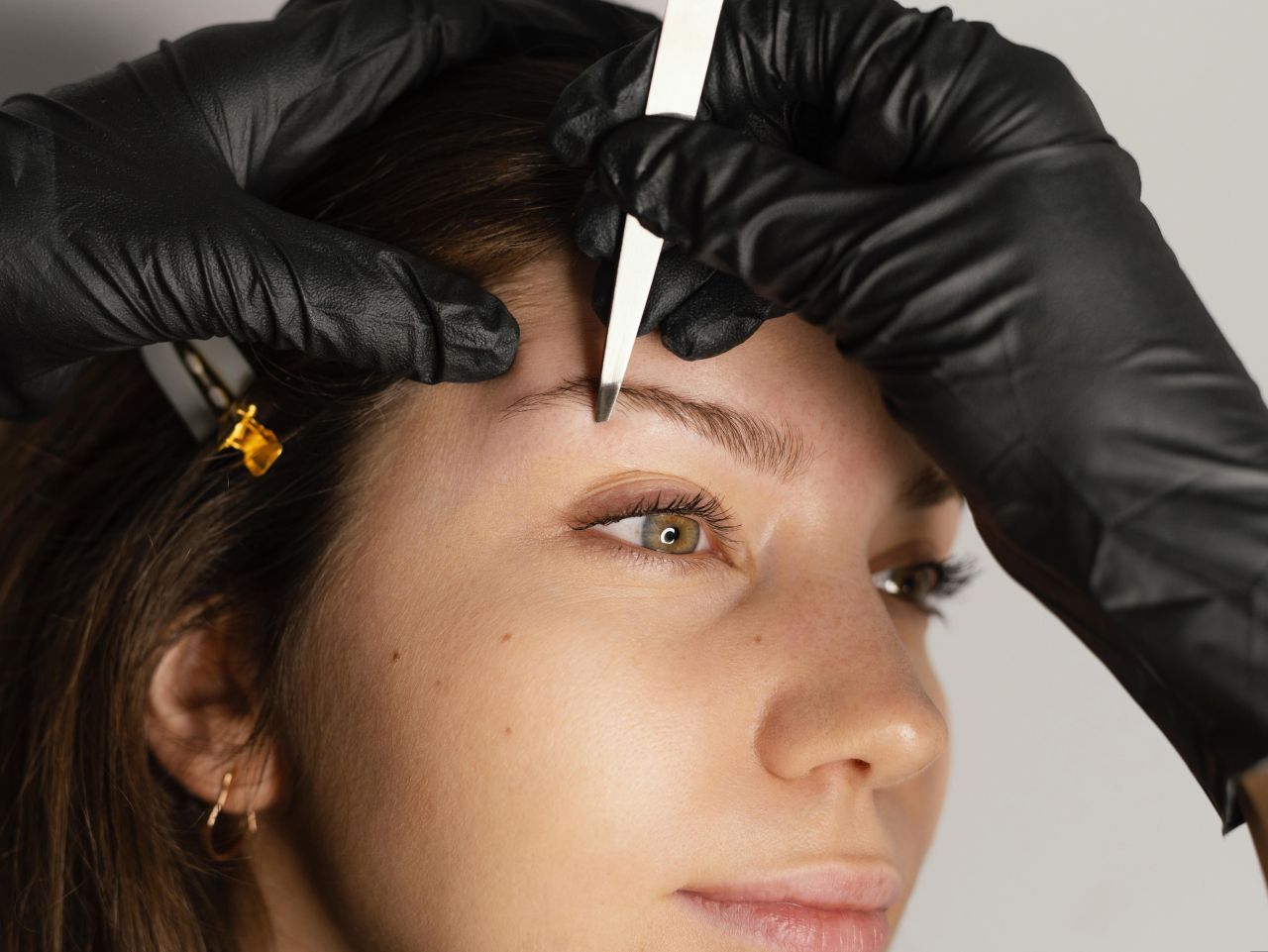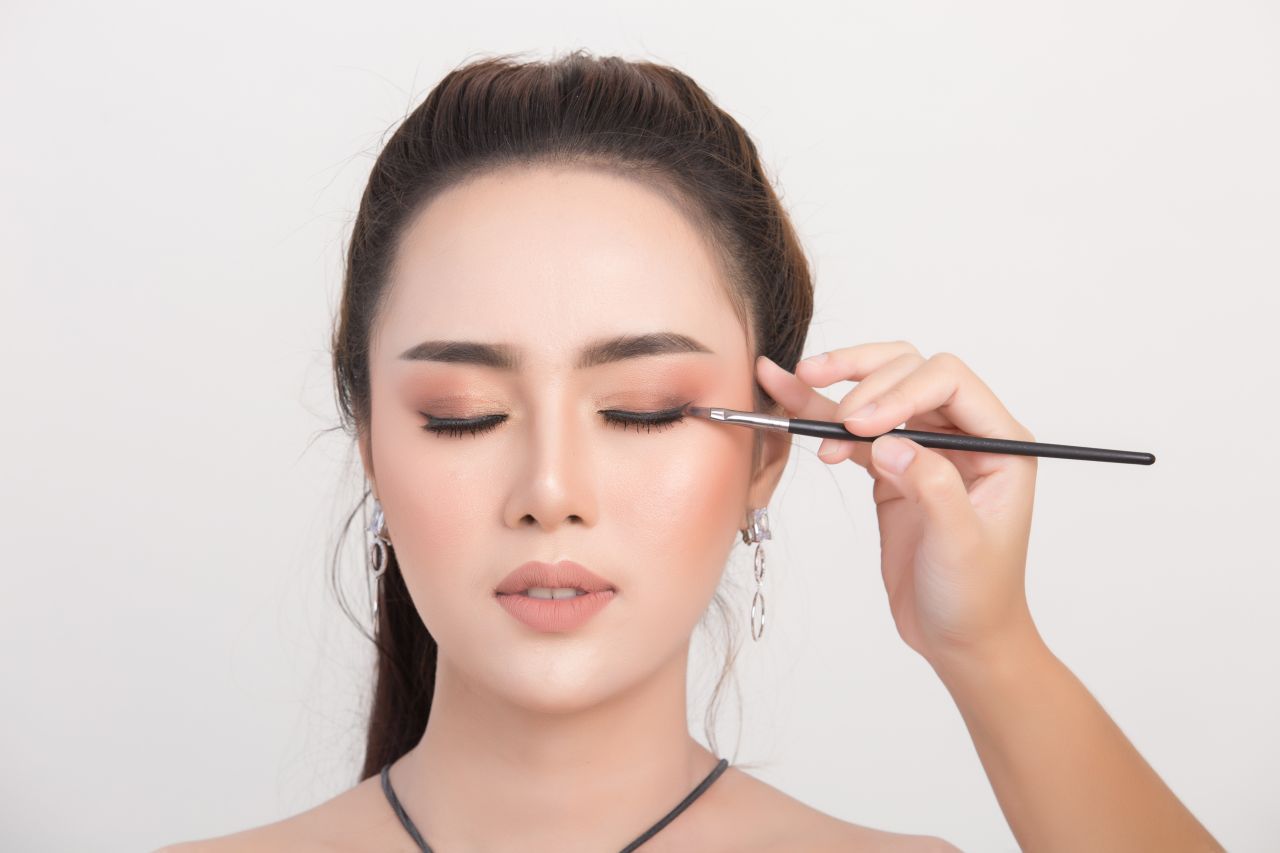Starting the process of improving your eyes with the accuracy and permanency of an eyeliner Getting an eyeliner tattoo can be an exciting and transformative experience, offering a permanent solution to the daily application of makeup.
However, a common reaction following the procedure is eye-watering, which can be surprising for many. This blog explores why this happens, what you can do about it, and other important considerations for a safe and successful eyeliner tattoo experience.
What Happens During An Eyeliner Tattoo Procedure?
Preparation And Consultation
- Medical Evaluation: Before the procedure, a thorough medical evaluation is essential. This includes checking for skin conditions, allergies, and reviewing your medical history to identify any potential risks. This step ensures that the procedure is safe and tailored to your health needs.
- Setting Expectations: Clear communication about what to expect during the procedure, potential discomfort, the healing process, and aftercare requirements helps build trust and prepares you mentally for the journey ahead.
Applying Numbing Cream
- Selection and Application: The right numbing cream is crucial for a comfortable experience. The technician selects it based on your skin type and allergies, then applies it meticulously to ensure even coverage and adequate absorption.
- Waiting Time: Allowing enough time for the numbing cream to take full effect ensures the eyelid area is properly numbed, minimising discomfort during the tattooing process.
The Tattooing Process
- Equipment Preparation: Sterilising the equipment and choosing a precise needle is essential to ensure safety and accuracy. The selection of pigment colour based on the client’s preferences and consultation highlights the personalised approach to achieving the perfect eyeliner look.
- Tattooing Technique: The technician’s expertise comes into play as they deposit pigment along the lash line. The technique varies to achieve different effects, from a natural lash enhancement to a bold, dramatic look. The technician’s skill in executing the desired style with smooth, even lines is paramount to the procedure’s success.
- Customisation: The ability to customise the eyeliner tattoo to the client’s specifications, from a subtle enhancement to a dramatic statement, showcases the technician’s versatility and understanding of individual client needs. This tailored approach ensures that the results reflect the client’s personality and aesthetic preferences.
- Safety And Hygiene:
- Upholding the highest safety and hygiene standards, including single-use needles and sterilised equipment, is non-negotiable. This prevents infection and guarantees a safe environment for the client, highlighting the technician’s professionalism and dedication to health standards.
- Client Comfort: Regular check-ins with the client to gauge their comfort level and make adjustments as necessary, such as reapplying numbing cream or taking breaks, reflect the technician’s commitment to a positive client experience. This empathetic approach ensures the client feels supported and at ease throughout the procedure.
Eye Watering Post-Procedure
The proximity of the tattooing process to your eyes can trigger a reflexive watering response as a natural defence mechanism. Despite using numbing agents, the process can cause mild irritation to the sensitive skin around the eyes, leading to watering as part of the body’s healing process.
Managing Eye Watering
To manage eye watering, resist the urge to touch or rub your eyes, as this can introduce bacteria and increase the risk of infection. Applying a clean, cold compress or a chilled, damp cloth gently over closed eyes can help relieve irritation and reduce swelling. Using recommended ointments as directed can also help keep the area hydrated and protected, reducing the risk of infection.
Ensuring Safety and Minimizing Risks
Choosing a skilled and reputable technician is crucial for a safe and successful eyeliner tattoo procedure. Verify their credentials, experience, and client reviews to ensure they adhere to safety and hygiene standards. Insist on single-use needles, a sterile environment, and the technician’s use of personal protective equipment. Request a patch test with the pigments to be used, especially if you have a history of sensitive skin or allergies.
Proper Aftercare
Following the aftercare instructions provided by your technician is essential for healing and maintaining the integrity of the tattoo. Avoid touching the area, keep it clean, and avoid activities that could expose the area to contaminants.
When To Seek Professional Advice
If symptoms like eye-watering, redness, or swelling persist beyond a few days or worsen, consult with your technician or a healthcare professional. Seek immediate medical attention if you experience changes in vision, increased sensitivity to light, or signs of infection. Consulting with a professional before the procedure to discuss your medical history, potential risks, and setting realistic expectations can provide valuable insights.
- Persistent Symptoms: While mild eye-watering, swelling, and redness are normal within the first few days post-procedure, if these symptoms persist or worsen, it’s crucial to seek professional advice. Prolonged symptoms could indicate an underlying issue that requires medical intervention.
- Changes in Vision or Eye Health: Any changes in vision, increased light sensitivity, or signs of eye health deterioration following an eyeliner tattooing procedure should prompt an immediate consultation with an eye care professional.
- Before Undergoing the Procedure: Consulting with a professional, ideally a board-certified dermatologist or a licensed cosmetic tattoo artist with extensive experience in eyeliner tattoos, can provide valuable insights into whether you’re a suitable candidate for the procedure. This consultation should include discussing your medical history and potential risks and setting realistic expectations.
Frequently Asked Questions
Why Do My Eyes Water After Getting An Eyeliner Tattoo?
Watering eyes after an eyeliner tattoo is a common and normal response. This reaction is primarily due to the sensitivity of the eye area and the body’s natural defence mechanism to protect the eyes from perceived harm. The tattooing process involves minor irritation to the delicate skin around the eyes, which can trigger tear production to cleanse and protect the area.
How Long Will My Eyes Keep Watering After The Eyeliner Tattoo Procedure?
Typically, the watering should subside within a few hours to a few days post-procedure. However, the duration can vary depending on individual sensitivity and the body’s healing response. Suppose you experience excessive tearing or it persists for longer than a week. In that case, it’s advisable to consult with your technician or a healthcare professional to ensure there’s no infection or other complication.
Is There Anything I Can Do To Minimise Eye-Watering After Getting An Eyeliner Tattoo?
To minimise watering, keep the area clean and avoid rubbing your eyes, which can further irritate them. Gently applying a clean, cold compress to the area (without pressing) can help soothe irritation and reduce swelling, potentially easing the watering. Also, follow any aftercare instructions provided by your technician, as proper care is crucial for healing and comfort.
Are There Any Other Normal Reactions I Should Expect After An Eyeliner Tattoo?
Besides watering, it’s common to experience some swelling, redness, and a feeling of tightness around the tattooed area. Some individuals might also notice slight itching as the skin heals. These reactions are typically mild and should gradually improve over the first week. Adhering to aftercare instructions will help manage these symptoms and promote healing.
When Should I Be Concerned About My Reaction To An Eyeliner Tattoo?
While mild reactions are normal, you should be alert to signs of infection or allergic reaction, such as persistent or increasing redness, swelling, pain, or any discharge from the eye area. If you experience significant discomfort or symptoms that worsen rather than improve over time, seeking medical attention promptly to address any potential complications is important.


